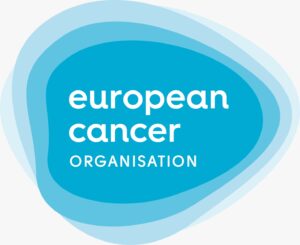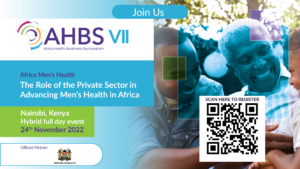Latest
Our news appears in our monthly eBulletin. Anything breaking between eBulletins will appear here.
GAMH PUBLISHES A NEW REPORT ON CANCER POLICY
Despite being more likely than women to develop and die from cancer, men are missing from global, regional and national cancer policies. Global Action on Men’s Health’s new report, Gone Missing: The treatment of men in global cancer policy, examines the extent of the omission and marks the start of a new advocacy campaign by GAMH on the issue.
More information about the report is available here.
14 June 2023
GAMH HAS A NEW CHAIR
We are delighted to announce that Prof Derek Griffith is GAMH’s new chair. He has taken over from Anthony Brown who has served as chair since GAMH was established in 2013. Derek is hugely eminent in the men’s health and racial equality fields as Founder and Director of the Center for Men’s Health Equity and a Founding Co-Director of the Racial Justice Institute at Georgetown University in Washington DC (USA). Trained in psychology and public health, Derek’s programme of research focuses on developing strategies to achieve racial, ethnic and gender equity in health. He specializes in interventions to promote Black men’s health and well-being and interventions to address racism in organizations and to mitigate the effects of structural racism on health. Derek has been on GAMH’s Board since November 2020 and a Vice Chair since March 2022.

Following his appointment by the Board, Derek said: ‘Thank you, Anthony, for your stewardship over GAMH in its first 10 years. I look forward to working with you and the rest of the GAMH Board to build on the strong foundation that we have established. As we celebrate a decade of work, I look forward to leading the organization as we work to improve the health and well-being of men across the globe in a way that is as inclusive and impactful as possible.’
Amon Lukhele (Outreach Scout Foundation, Malawi) and Martin Tod (Men’s Health Forum, Great Britain) will continue as Vice Chair and Treasurer respectively and we are grateful to them for their continued service.
Many thanks are due to Anthony Brown who has stood down after a long stint as Chair of GAMH. He has steered the organisation from its beginnings as a small network to its current position as an international charity with a growing membership, status and influence. Fortunately, Anthony will not be leaving us just yet – he will remain on the Board for another year to support Derek in his new role and to continue to contribute his experience and expertise. GAMH Director Peter Baker said: ‘I owe a huge debt to Anthony for the support he has consistently given to GAMH and to me personally. He has been a wise, authoritative and always calm presence who has made a massive contribution to the establishment of a new organisation on the world health policy stage. I now look forward to working with Derek as GAMH continues its vital work to improve the health of men and boys wherever they live and whatever their background.’
Anthony is replaced on the GAMH Board as the representative of the Australian Men’s Health Forum by Rae Bonney, our newest trustee. Rae is AMHF’s first female board member, a trained counsellor, a volunteer ambassador for the mental health organisation Beyond Blue and has almost 10 years’ experience developing, designing and delivering workplace wellbeing programmes. We are delighted to welcome Rae to the organisation.
15 February 2023
GAMH SUPPORTS UNIVERSAL HEALTH COVERAGE DAY 2022
GAMH is delighted to support Universal Health Coverage Day on 12 December 2022. We want to see a world in which everyone everywhere can access a full range of quality health services – from prevention to palliative care – without financial hardship. Universal health coverage (UHC) lifts people out of poverty, promotes the wellbeing of families and communities, protects against public health crises, and moves us toward the goal of Health For All.
The achievement of UHC requires much more attention to be paid to gender, including men and boys. Male life expectancy globally is currently 71 years compared to 76 years for females. Men have a 21% probability of dying between the ages of 30 and 70 from cardiovascular disease, cancer, diabetes or chronic respiratory disease. For women, the probability is 14%. The male suicide rate is over twice the female rate.
The wide-ranging actions that are required for men and boys are set out in our statement on UHC Day.
Peter Baker, GAMH’s Director, said: ‘Global Action on Men’s Health fully supports Universal Health Coverage Day 2022 and calls on international health organisations and national governments to commit to developing health services that are accessible and welcoming to everyone, whatever their gender. Too many men and boys are currently missing out on essential prevention, diagnoses, treatment and care because health and related services overlook their specific needs. This is contributing directly to unnecessarily early deaths from a wide range of physical and mental health problems.’
12 December 2022
GAMH AND EUROPEAN CANCER ORGANISATION SIGN COLLABORATION AGREEMENT
Men’s cancer outcomes in Europe are unnecessarily poor and urgent action is needed in the fields of research, policy and practice. Reflecting their shared commitment to this goal, the European Cancer Organisation (ECO) and GAMH signed a collaboration agreement at the European Cancer Summit in Brussels on 17 November 2022. This follows joint work on a men and cancer roundtable in April 2022 and an action report published in July.
 Peter Baker, GAMH Director, said: “Men in Europe carry an excess burden of cancer – they are more likely than women to develop cancer and to die from it. But it doesn’t have to be this way. I am delighted that our new partnership with the European Cancer Organisation will enable us to collaborate on a new research, policy and practice agenda that will contribute to better cancer outcomes for men in Europe.”
Peter Baker, GAMH Director, said: “Men in Europe carry an excess burden of cancer – they are more likely than women to develop cancer and to die from it. But it doesn’t have to be this way. I am delighted that our new partnership with the European Cancer Organisation will enable us to collaborate on a new research, policy and practice agenda that will contribute to better cancer outcomes for men in Europe.”

Dr Andreas Charalambous, ECO’s President, said: “We are delighted that an memorandum of understanding has been signed with Global Action on Men’s Health. We envision that this collaboration will be an opportunity to work together in achieving best possible health and wellbeing for men and boys. This joint collaboration will be reflected in current and future actions being done through our HPV Action Network and Inequalities Network that place emphasis on men’s and boys’ health.”
Our collaboration with ECO is focused on the following areas:
- Partnering in project development and implementation
- Sharing intelligence, development contacts and information from institutional bodies at both the European and global levels
- Mutual recognition as a collaboration partner
- Cooperation in promoting each other’s activities
- Connecting and sharing relevant experts from both organisations on specific institutional activities of mutual interest
30 November 2022
MEN’S HEALTH IN AFRICA
GAMH has announced a strategic partnership with Africa Health Business (AHB), organisers of a symposium on The Role of the Private Sector in Advancing Men’s Health in Africa. This hybrid event will take place in Nairobi (Kenya) on 24 November 2022.
There will be sessions on prevention strategies for men in Africa, reducing the burden of NCDs, reducing the cancer burden, men’s reproductive health, and strengthening health systems in Africa.
Health experts, business leaders, government officials and development partners are expected to attend. GAMH has been invited to make a presentation.
8 September 2022
GAMH STATEMENT ON MONKEYPOX
The World Health Organization (WHO) declared the rapidly spreading monkeypox outbreak to be a ‘public health emergency of international concern’ in July 2022. This means that monkeypox is now considered to be a global health emergency, WHO’s highest level of alert, and that a co-ordinated international response is required.
One of the lessons of the COVID-19 pandemic, is that infectious disease outbreaks are not gender-neutral. This means that women, men and gender minorities are differentially affected. It is therefore vital that a gender lens is incorporated into all infectious disease outbreaks in terms of monitoring their impact and developing strategies to prevent infection and transmission as well as for the treatment and care of people who have been infected and who are unwell.
It is well-established that, to date, men have borne an excess burden of monkeypox. This is the case in both Africa, where monkeypox has been endemic for many years, and in the countries to which the disease has recently spread. In the countries newly-affected, the vast majority of cases have been in men who have sex with men.
GAMH is calling for:
- Actions on monkeypox at the global, national and local levels that take full account of the specific needs of men and boys as well as those of other genders.
- The collection and fast-track publication of sex-disaggregated data on monkeypox incidence and mortality at all levels.
- The further disaggregation of data to show how outcomes by sex intersect with gender identity, sexuality, age, income, race and other key variables.
- Research to understand better the causes of men’s higher risk of monkeypox in all countries and how it can most effectively be addressed.
- Vaccines to prevent infection to be made available to at-risk populations as soon as is practicable. These populations must be actively targeted for vaccination.
- Services for the prevention, diagnosis and treatment of monkeypox (such as sexual health, health promotion, and communicable disease services) to be made as accessible as possible through the involvement of local men from the most at-risk populations in service design and health promotion efforts.
- Public health campaigns, including male-targeted messaging, that educate at-risk populations about monkeypox, including how to prevent it, the symptoms, the most effective treatments and how to avoid onward transmission.
- All public statements about the disease to emphasise that it can affect anyone. While it is clear that some groups of men are at much greater risk of monkeypox in many countries, and should therefore be a focus for action, it is essential that communities are not stigmatised and discriminated against.
- The rapid and wide dissemination of evidence of good practice in work with men in this field.
- The full involvement of organisations working with men, particularly those working with MSM in countries where MSM comprise the majority of cases, in decision-making about the monkeypox response.
The full GAMH statement can be viewed here.
2 September 2022
DELIVERING MEN’S HEALTH: A GUIDE FOR POLICYMAKERS AND SERVICE PROVIDERS
GAMH has published (on 27 September 2021) a new resource that will help health policymakers and service providers at all levels (global, national and local) to take practical steps to improve men’s health and wellbeing through the development and delivery of better-targeted policies and programmes.
The new resource is in two main parts. The first is a report, Delivering Men’s Health: A guide for policymakers and service providers. This contains 10 key steps that can be taken for more effective engagement with men.
The second part of the resource is a new GAMH database, hosted by Mengage at the Men’s Health Information and Resource Centre, Western Sydney University. This contains links to a large number of papers and reports that cover key issues such as policy, gender norms, equity and intersectionality, and examples of good practice. The database provides the detailed evidence on which the report is based.
More information about the Delivering Men’s Health project is available here.
GAMH ANNUAL GENERAL MEETING
The next AGM will take place in January 2022. More information will be available about the AGM in October.
27 September 2021


